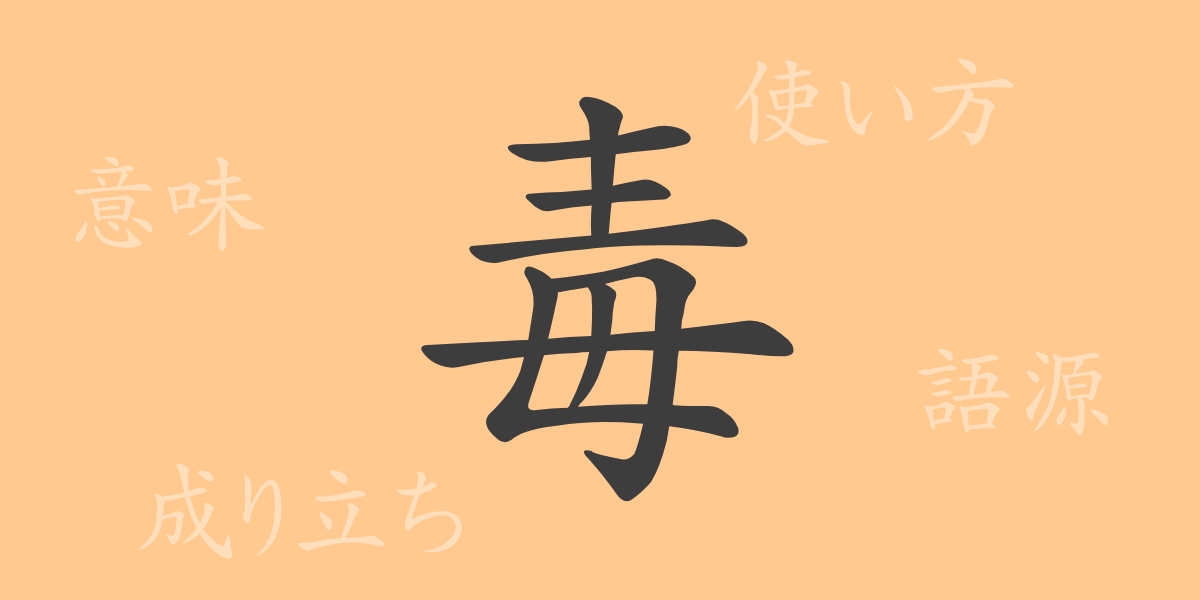Everyday life harbors ‘poison (どく)’. How much do you know about the deep meanings and origins of this character? ‘毒’, a commonly used Kanji in Japanese, is deeply entrenched not just in the language but also in the culture. This article will unravel everything from the origins to the meanings and usages of ‘毒’, including its appearance in idioms and proverbs.
Origins of ‘毒 (どく)’
The Kanji ‘毒’ originates from ancient China, initially evolving from the character ‘独’, which depicted isolation or being alone. Over time, the solitary state represented by ‘毒’ came to denote danger or harm, evolving to signify anything toxic or harmful.
Meaning and Usage of ‘毒 (どく)’
In modern Japanese, ‘毒’ primarily refers to substances harmful to living organisms, including both natural toxins in flora and fauna and synthetic chemicals. It is also frequently used metaphorically, as in ‘心に毒を持つ (having poison in one’s heart)’, to describe actions or mental states that negatively influence others.
Reading, Stroke Count, and Radical of ‘毒 (どく)’
The Kanji ‘毒’ is used in various readings within the Japanese language:
- Readings: On’yomi ‘ドク’, Kun’yomi ‘ぶす’
- Stroke Count: 9 strokes
- Radical: 毋部 (‘むぶ’)
Idioms, Phrases, and Proverbs Using ‘毒 (どく)’
Idioms and proverbs containing ‘毒’ reflect its strong imagery:
- ‘毒を食らわば皿まで (If you eat poison, finish the plate)’: Expresses the resolve to follow through with actions to the end.
- ‘無毒不世 (No poison, no long-standing)’: Suggests that without some harshness or danger, things do not last.
- ‘口に毒を含む (To hold poison in one’s mouth)’: Describes speech that is bitter or harsh.
Conclusion on ‘毒 (どく)’
While the shape and meaning of ‘毒’ have evolved over time, today it predominantly denotes substances or influences that are harmful. Its potent image enriches various expressions in Japanese, utilizing ‘毒’ in idioms and phrases that impact the human psyche. Although ‘毒’ requires caution, its dynamic in language creates compelling expressions that resonate deeply.

























